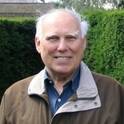
Contrary to what I was taught in high school in the mid-1940s, science is no longer defined as an inductive methodology for immaculately conceiving culture-free truth after sifting through a huge data base of objective facts. For without some prior hypothesis to guide her, a scientist would not be able to decide which facts were relevant. Nowadays hypotheses can come from anywhere in the imagination or culture within which the scientist is working. The importance of a scientific hypothesis is that it be framed in such a way that it can be falsified when tested. Science now has a history and is part of human cultural evolution. The major premise of both these recent books is that scientific innovation needs to be understood as intricately bound to the particular time and cultural milieu in which it occurred.
Available at: http://works.bepress.com/charleskaysmith/131/
